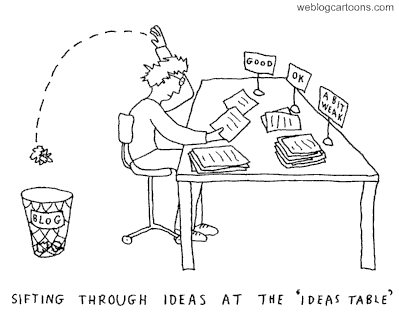Iterative & Vertical Dimensions of Reflection
Within self-reflection, theorists have noted that reflection can operate
in both an iterative and vertical dimension.
Iterative refers to reflection triggered by experience (Mann, Gordon
& McLeod, 2009) and tends to follow the processes familiar in most models
of reflective practice i.e. the recognition that an experience has elicited certain
feelings of comfort/discomfort that need to be acted upon through the formation
of abstract concepts of change which, in turn are put into practice and
evaluated (see previous blog for an overview and useful links to iterative models).
Vertical refers to the depth of reflection from surface to deep,
theoretical analysis (Mann, Gordon & McLeod, 2009) and can be summarised in
the five levels of reflective practice noted by Zeichner and Liston (1996, in
Finlay, 2007, p.4):
1. Rapid reflection - immediate, ongoing and
automatic action by the teacher.
2. Repair –thoughtful decisions to alter their
behaviour in response to students’ cues.
3. Review – thinking, discussing, writing
about some element of their teaching.
4. Research –systematic and sustained
thinking over time, informed by research.
5. Retheorizing and reformulating –critically
examining personal practice in the light of academic theories.
Combining the two we get increasing depth of iterative
cycles within the vertical layers of reflection.
Figure 1 illustrates the MindLab Evaluate your reflective practice - July 17 Survey (n=148) results. This indicates that most teachers tend to operate at the rapid reflection, repair and review stages. Deeper levels of reflection tend to take place less frequently and this may well be a product of being time poor and/or dealing with increasingly complex situations.
Figure 1
References:
Finlay, L. (2008). Reflecting
on “Reflective practice.” Retrieved from
Mann, K., Gordon, J., &
MacLeod, A. (2009). Reflection and reflective practice in health
professions
education: A systematic review. Advances in Health Sciences Education, 14(4),
MindLab (2017). Evaluate your Reflective Practice – July 2017. Available from: https://docs.google.com/forms/d/e/1FAIpQLSee9-DSqP0CG293TIgL5lq7H3c2Nbh5QyBrejnfWg1M0FAGsA/viewanalytics




Comments
Post a Comment